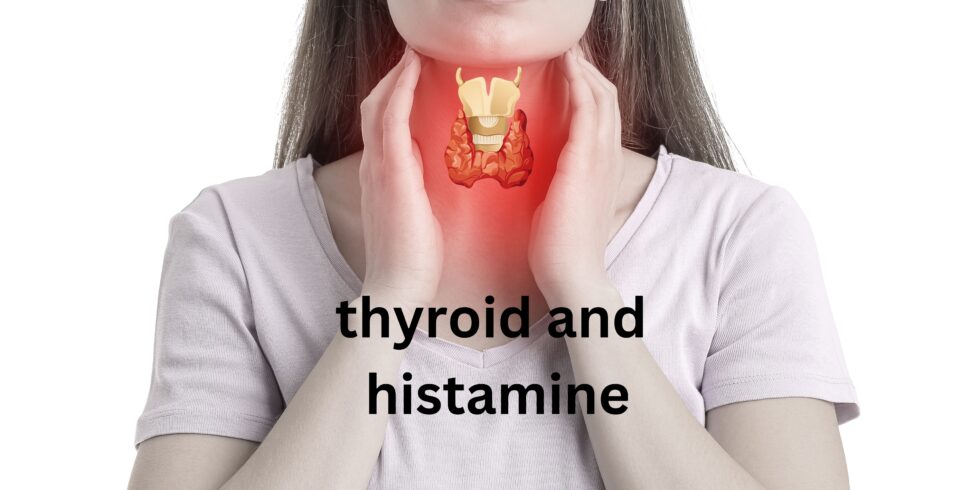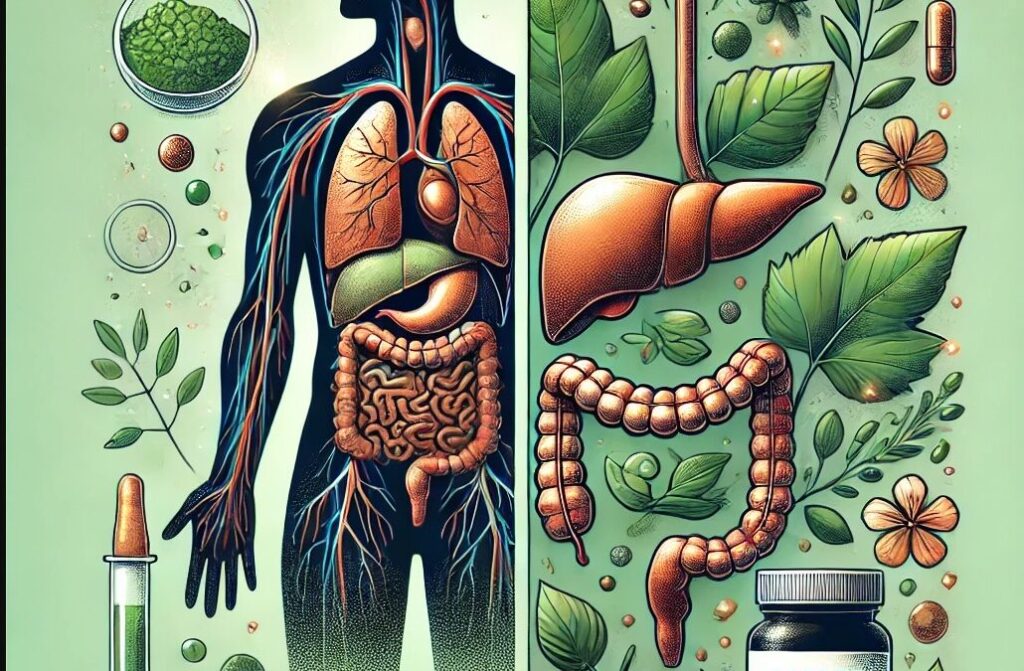Gut Health and Vitamin D
Do you know the role vitamin D plays in your gut health? The incidence of chronic inflammatory bowel diseases (IBD) has increased over the past few decades, especially in developed countries. I was particularly interested in the role vitamin D plays in the therapy of IBD, since low vitamin D is a universal occurrence it the subset of clients that I see.
You can read more about vitamin D physiology here, and the role it plays in your immune system here.
What is vitamin D?
Vitamin D is a hormone with multiple physiologic actions, the metabolites of which are stored in tissues and circulating plasma (Vassallo & Camargo, 2010). 1,25-dihydroxyvitamin D3 (1,25-OH), the active form of vitamin D, is a key modulator of the immune system (Assa et al., 2014). Decreased levels have been linked to autoimmune diseases and more recently, the prevalence of IBD. This is seem more often in those who have vitamin D receptor polymorphisms (Assa et al., 2014). In fact, colonic epithelial VDR expression is reduced in IBD patients. As a result, it makes sense to evaluate the role vitamin D plays in gut health.
A brief word about IBD
IBD is used to describe conditions that involve inflammation of the bowel, including Crohn’s disease and ulcerative colitis. They are thought to involve a complex interplay of genetics, environmental, microbial and immune triggers (Kong et al., 2008). Impaired mucosal barrier function and leaky gut are common in IBD patients.
Dysregulation of junction proteins is an important mechanism that underlies the increased intestinal permeability that is seen in the intestinal epithelium of IBS patients. A compromised intestinal barrier can results in exposure of the host to luminal antigens and bacteria which can lead to inflammation (Kong et al., 2008). Interestingly, the integrity of the intestinal mucosal barrier has the ability regenerate, through mechanisms of intestinal stem cells located at the base of the crypt, which can replenish the surface epithelium (Kong et al., 2008).
Key point: The tight junctions of the intestinal epithelium can seal the paracellular space and are responsible for regulating the “leakiness” or permeability of the mucosal barrier. You may have heard the term leaky gut.
Recent studies indicate a link between vitamin D deficiency, IBD risk, and gut health. According to Kong et al, seasonal variations in the onset and severity of IBD have been reported, with a higher incidence during the lower vitamin D exposing winter months. Sun exposure is an important source of vitamin D, and the prevalence of IBD exhibits a north-south gradient, paralleling sunlight exposure (Kong et al., 2008).
Populations near the equator are at relatively lower risk for developing IBD, which according to Kong, can be due to the sunlight patterns of populations near the equator. Relocation from southern to northern climates is similarly associated with an increased risk of developing CD (Raftery et al., 2015).

So how does vitamin D work?
I found it interesting that vitamin D has such a powerful role in regulating the tight junction proteins in the intestinal epithelium, playing a significant role in gut health. Vitamin D has an immunomodulating role in the intestinal mucosa by having the ability to suppress T cell –mediated immune responses (Kong et al., 2008). In studies with mice that were induced bowel inflammation using dextran sulfate sodium (DSS), scientists were able to observe the response of the intestinal epithelium to the vitamin D receptor (VDR) in maintaining barrier homeostasis.
“In vitro experiments demonstrate that VDR mediates the activity of 1,25(OH)2D3 that induces junction protein expression and strengthens the tight junction complex (Kong et al., 2008). These studies demonstrate that activated Vitamin D increases the tight junction (TJ) proteins and enhances healing following an injury in the intestinal epithelium (Raftery et al., 2015).
This is solid evidence that vitamin D plays a role in gut health.
So how is vitamin D deficiency contribute to damage to the GI tract and poor gut health (Assa et al., 2014)?
- Vitamin D deficiency is associated with elevated levels of bacteria in colonic tissue. The mice treated with vitamin D demonstrated a retraction of bacterial translocation and increased expression of intercellular tight junction (TJ) proteins. Vitamin D can directly modulate T cell antigen receptor and enhances expression of antimicrobial peptides (such as catelicidin).
- Vitamin D deficiency is associated with low grade colonic inflammation which can result in an altered immune status. In fact the vitamin D deficient group presented with increased levels of pro-inflammatory cytokines compared with vitamin-D sufficient animals. “Importantly, those patients with the highest blood levels of vitamin D showed signs of reduced inflammation, as measured by C-reactive protein and antimicrobial peptides” (Real Food Forager, n.d.).
- Vitamin D deficiency can result in increased paracellular permeability, or commonly known as leaky gut. Vitamin D has the ability to protect epithelial cells against bacterial induced disruption of tight junctions (including zonulin and claduin distribution), which indicates it could have the ability to directly modulate the epithelial barrier.
- Vitamin D deficiency and intestinal infections that can promote persistent intestinal dysbiosis or altered microbial ecology. (Vassallo & Camargo, 2010). Vitamin D can protect the intestinal mucosa from alteration in the composition of the microbiota. “An altered gut microbiome appears to be an essential factor driving dysregulated immune responses characteristic of recurring and relapsing mucosal inflammation in IBD” (Assa et al., 2014). This can be due to the ability of vitamin D to induce antimicrobial peptides (Raftery et al., 2015). In addition, newer research studies are focusing on the role of vitamin D in autophagy (Raftery et al., 2015).
Vitamin D and allergies in children
Another area that piqued my interest was the role vitamin D deficiency may have in children’s allergies. I have noticed more and more children are dealing with different types of food allergies, making it an epidemic. Vitamin D synthesis requires exposure to UVB radiation in sunlight, and lack of sunlight can be a major contributor to vitamin D deficiency (Vassallo & Camargo, 2010).
Kids are often home during the winter months and in general, do not play outdoors as often as they used to. Because of differences in UVB exposure, levels of vitamin D fluctuate with season (being lowest in the winter).
As it was mentioned earlier, gastrointestinal infections can induce a leaky epithelium and thus dietary and microbial antigens are easily permitted into the intestinal lumen. This may be what promotes the maladaptive allergic response to food antigens which is often seen in subjects with food allergies.
“Vitamin D deficiency and infections might act synergistically to compromise intestinal barrier integrity, increase immune system exposure to food antigens, and contribute to sensitization and development of food allergies” (Vassallo & Camargo, 2010). Therefore children with vitamin D deficiency, dysbiosis, GI infections, and a disturbed intestinal barrier appear to be at higher risk of food allergies (Vassallo & Camargo, 2010).
References
Assa, A., Vong, L., Pinnell, L. J., Avitzur, N., Johnson-Henry, K. C., & Sherman, P. M. (2014). Vitamin D deficiency promotes epithelial barrier dysfunction and intestinal inflammation. J Infect Dis, 210(8), 1296-1305. doi:10.1093/infdis/jiu235
Kong, J., Zhang, Z., Musch, M. W., Ning, G., Sun, J., Hart, J., . . . Li, Y. C. (2008). Novel role of the vitamin D receptor in maintaining the integrity of the intestinal mucosal barrier. Am J Physiol Gastrointest Liver Physiol, 294(1), G208-216. doi:10.1152/ajpgi.00398.2007
Raftery, T., Martineau, A. R., Greiller, C. L., Ghosh, S., McNamara, D., Bennett, K., . . . O’Sullivan, M. (2015). Effects of vitamin D supplementation on intestinal permeability, cathelicidin and disease markers in Crohn’s disease: Results from a randomised double-blind placebo-controlled study. United European Gastroenterol J, 3(3), 294-302. doi:10.1177/2050640615572176
Real Food Forager. (n.d.) Vitamin D is Associated with Reduced Intestinal Permeability and Extended Remission in Autoimmunity. Retrieved (2018, March 17) f from https://realfoodforager.com/vitamin-d-associated-with-reduced-intestinal-permeability-and-extended-remission-in-autoimmunity/
Vassallo, M. F., & Camargo, C. A., Jr. (2010). Potential mechanisms for the hypothesized link between sunshine, vitamin D, and food allergy in children. J Allergy Clin Immunol, 126(2), 217-222. doi:10.1016/j.jaci.2010.06.011
Vitamin D Council. (2012, July 23). Inflammatory Bowel Disease. Retrieved (2018, March 17) from https://www.vitamindcouncil.org/health-conditions/inflammatory-bowel-disease/




